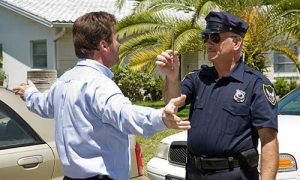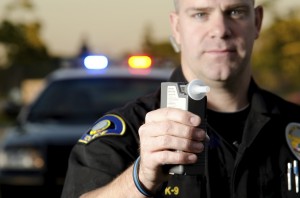North Carolina Sex Offender Registry Violations
If you live in North Carolina and have been convicted of a sex offense, you may be required to register on the North Carolina Sex Offender Registry. This registry provides the public with detailed information about individuals convicted of sex offenses who may work or reside within a community. Being required to register as a sex offender can have severe implications on your daily life, affecting your ability to find housing, a job, and more. However, failing to register or comply with the associated restrictions can lead to more serious consequences and additional charges.
Who is Required to Register on the North Carolina Sex Offender Registry?
Offenders convicted of a “reportable conviction” are required to register as sex offenders with the sheriff within three days of being released from prison, placed on probation, or entering the state of North Carolina. The most common crimes that are “reportable convictions” and require registration include:
- Rape
- Statutory rape or sexual offense with a minor
- Sexual battery
- Indecent liberties with a minor or a student
- Human trafficking
- Soliciting a minor by computer
- Indecent exposure in the presence of a minor
- Incest
- Peeping
- Sexual acts with an animal
- Sex Offender Registry Restrictions in North Carolina
Being listed on the Sex Offender Registry comes with numerous restrictions that must be followed. These include:
- Residency Restrictions: Under North Carolina law, registered sex offenders are prohibited from knowingly residing within 1,000 feet of a school or childcare center.
- Employment Restrictions: Registered sex offenders are prohibited from providing instruction, supervision, or care for minors, including babysitting or childcare services at their home. Additionally, they are prohibited from possessing a commercial driver’s license with a P (passenger) or S (school bus) endorsement and cannot renew credentials for any type of emergency medical services or hold a funeral license from the North Carolina Board of Funeral Services.
- Other Restrictions: Since the 2017 Supreme Court case overturned the North Carolina law prohibiting registered sex offenders from joining social media websites, registered sex offenders are allowed to participate in social media. However, they must disclose any online identifiers. Additionally, those convicted of certain sex crimes may be prohibited from being within 300 feet of locations intended for the care of children, such as schools, museums, playgrounds, or daycare facilities.
How Long Is Registration Required for the Sex Offender Registry?
Depending on the specific crime committed, the time an offender must be listed on the sex offender registry in North Carolina can range from a minimum of 30 years to a lifetime. Generally, those convicted of repeated or aggravated offenses or who are considered sexually violent will be subject to lifetime registration and verification of residence every 90 days. They will be unable to register for a shorter period unless the sentence is revoked or pardoned. For other offenders, it may be possible to petition the court to terminate the sex offender registration requirement after 10 years.
Violations of the Sex Offender Registry
Failure to comply with the terms of release or probation, including registering on the sex offender registry, can result in a Class F felony charge. If you are required to register on the North Carolina Sex Offender Registry, you must report many changes in your life to law enforcement, including changes of address and appearance. If you plan on leaving the state, you will need to check that state's requirement for visitor registration.
Other violations that can result in a Class F felony include failing to notify the sheriff of a change of address, failing to return a verification notice, and forging or submitting information or verification notices under false pretenses.
If you have been charged or convicted of any type of sex offense or violation of the sex offender registry, you need a criminal defense team experienced in handling these cases. At DeMent, Askew, Johnson & Marshall, our attorneys are accomplished criminal defense attorneys with over 40 years of experience in all facets of sex crimes. If you have questions about the requirements of the North Carolina Sex Offender Registry or believe you may be able to request a termination, contact us to help you navigate this complex set of laws. If you are faced with a sex crime in Wake County or Carteret County, North Carolina, contact us today for a consultation. Call 919-833-5555 for our Raleigh office or 252-251-5555 for our Morehead City office.





































